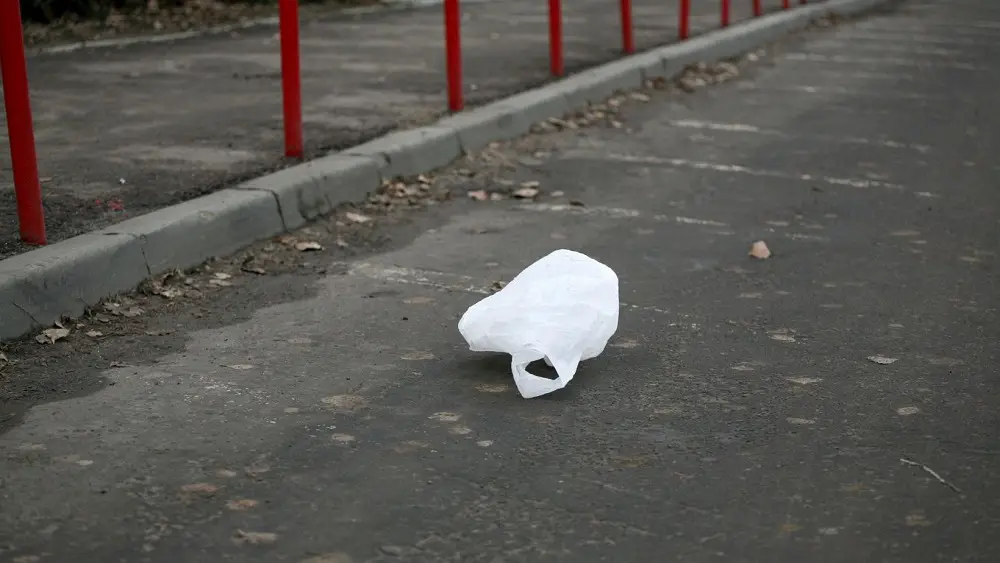With an increased awareness of the damage caused by plastic bags, it’s no wonder that there is a shift of motivation in people to ban plastic bags.
Once they were considered a convenient resource that was cheap to manufacture and efficient for use.
Now, they serve as one of the leading threats to our environment on earth having profound effects on the environment on land, in the sea, and the health of animals and humans alike.
Looking at the bigger picture, it’s clear to see the damage that’s being done by this single plastic. The overconsumption of plastic bags is leading to extreme destruction.
Whilst a vast amount of damage has already been done, there is an opportunity to prevent more damage from being done in the future.
This post will give you all the reasons why plastic bags should be banned to preserve our health and the health of our planet.
The Reasons To Why Plastic Bags Should Be Banned?
Polluting The Land And The Sea
After years of the overproduction and consumption of plastic bags, it has become apparent that the number of plastic bags out in the world is becoming a threat.
Plastic bags are having a significant effect on our environment on land and in the sea.
Next time you’re out walking, look around and see how many plastic bags you can spot. Chances are there will be at least one hanging around.
Whilst, a single plastic bag looks harmless, the accumulation of plastic bags out in the world harms our environment.
Land
The overflow of plastic bags in landfills creates a chain of problems. The first is that plastic bags are not biodegradable.
As a result, the chemicals they are made from leach into the ground and enter our waterways leading to the disruption of human health and agriculture.
Sea
In addition, those that don’t make it to landfills become litter and end up blocking drains and tarnishing natural spaces. This has been known to have profound effects on marine life as plastic bags make their way to the ocean.
This has caused numerous deaths with animals trapped and suffocated by plastic bags. Banning plastic bags would ensure the prevention of such destruction on the land and sea.
Contributing To Climate Change
Plastic bags are made from polythene. This is a non-renewable resource that derives from petroleum and natural gas.
The process of making plastic bags involves burning fossil fuels which result in the emission of greenhouse gases into the atmosphere consequently contributing to global warming.
It’s clear that the production of plastic bags is energy intensive. However, the core problem here is that the product produced is not biodegradable.
Producing a product that is known to be unsustainable may have irreversible consequences as we are already starting to see. Banning the production of plastic bags may be able to prevent further damage from being done.
Extreme Toxicity
As we know, plastic bags are not degradable as they are made from resistant synthetic polymers that cannot be broken down completely. However, what few people know is that plastic bags contain microplastics.
These are characterized as microscopic plastic pieces. When left in landfills or discarded into the environment, these microplastics are deposited causing the contamination of the air, water, and soil. Microplastics are highly toxic and have critical effects on the human body as well as the health of wildlife.
The Effects On Human Health

When microplastics are dispersed into the air and water, we are instantly put at risk. These particles have significant effects on our health.
When microplastics are ingested as a result of food or water contamination, the body is exposed to high concentrations of toxins. Some of the toxins exposed may lead to dire health concerns and diseases such as cancer.
Plastic bags also contain toxic dyes. When left, these dyes leach into waterways and we are then exposed to its toxic effect.
The chemicals leached from plastic bags can affect hormone regulation. This can result in severe illness.
The Effects On Wildlife
Similarly, contaminated microplastics leave animals exposed to high concentrations of toxins which causes significant health implications. Its toxic properties affect the gastrointestinal tract of organisms causing pain, disease, or even death.
Once ingested, there is no reverse. Marine life is particularly affected by the toxins of microplastics leading to an increase in more animals in the sea suffering from diseases and cancer.
Banning plastic bags will ensure that no further unnecessary harm is done to affect the health of humans and animals.
Difficult To Recycle
Did you know that recycling plastic bags is not a simple process? Whilst considered easy to make, to recycle them, specialized equipment is needed to break down the plastic to be able to mold it into something new.
Doing this involves a process of melting down the plastic which uses a considerable amount of energy. This process of recycling plastic is not only harmful to the environment, it is harmful to those living in the surrounding areas as toxic smoke is released into the air.
This has been known to cause disease and cancer in those continuously inhaling these fumes.
Therefore, recycling plastic doesn’t serve as a sustainable process as it is expensive, requires a lot of energy, and puts people at risk.
Moreover, very few plastic bags can be recycled which leaves a continuing problem of the contamination of microplastics being leached into the environment. Banning plastic bags would ensure that no further damage is done.
Takeaway
Plastic bags are no longer needed and serve to cause destruction in the world as it is today.
They once were considered a convenient solution, but now it is clear that overproduction and consumption are having significant effects on the health of humans, animals, and the environment.
Whilst banning plastic bags wouldn’t reduce the effects it has, it would help to prevent further damage from being done in the future, allowing us to make up for the damage already done.



